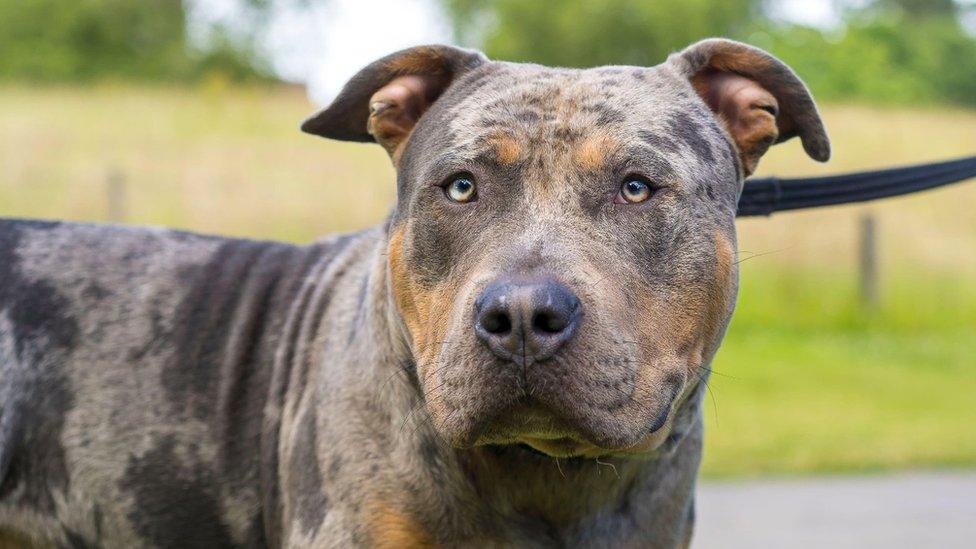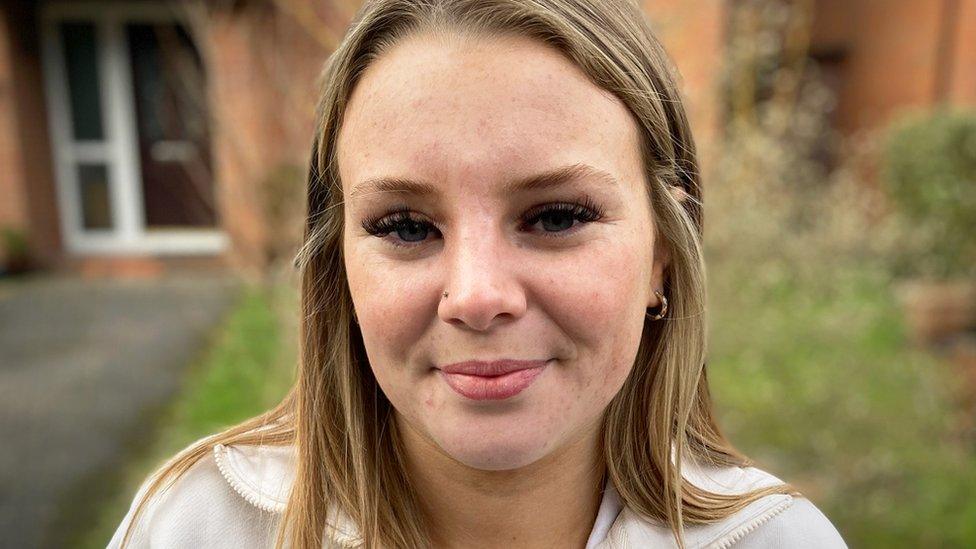American Bully XL dogs spark South Yorkshire police chiefs' concern
- Published

The American Bully XL breed is legal in the UK
Police chiefs in South Yorkshire have expressed concerns about a big rise in the number of incidents involving the dog breed known as American Bully XL.
South Yorkshire Police said dangerous dogs incidents as a whole in the county had more than doubled in five years.
But the American XL Bully, which is not a banned breed, was "disproportionately represented", the force said.
The Dogs Trust said there was no evidence the rise in incidents was down to one particular breed.
Assistant Chief Constable Dan Thorpe, of South Yorkshire Police, said each year the force had seen "significant increases in dangerous dog-related incidents".
"In 2018, we saw 77 of these incidents, and have already seen 180 in the first six months of this year," he added.
ACC Thorpe said the American XL Bully breed had accounted for 25% of all the dogs seized by the force since January last year.
"We can't ignore the fact that the XL Bully breed is disproportionately represented in the number of dog attacks we attend," he said.

South Yorkshire's ACC Dan Thorpe says the XL Bully breed is "disproportionately represented" in dog attacks
The breed, which is legal, has been responsible for a number of recent fatal dog attacks in the UK, according to South Yorkshire Police.
A total of 89 dogs had to be destroyed during such incidents last year in order to protect public safety, the force said.
ACC Thorpe said: "In the time it takes us to get there, any one of those incidents could easily result in serious injury or even death.
"There is a harsh reality to this. We have had incidents in South Yorkshire where XL Bully dogs have caused serious injury to children and adults.
"A woman in South Yorkshire bought two XL Bully dogs, believing them to be gentle giants. Those dogs turned on her in her home and caused fatal injuries," he added.
'Lockdown puppies'
Dr Alan Billings, South Yorkshire's Police and Crime Commissioner, said in recent months he had become increasingly concerned about the number of dog attacks in the county.
Many people had bought dogs for the first time during the pandemic, despite having no prior experience and no access to dog training classes in that period, he said.
"These lockdown puppies have now grown into mature dogs and we are seeing the consequences."
Dr Billings said it was not just a problem in South Yorkshire, and 2022 had been the worst year nationally for deaths caused by dogs.
"There are certain breeds that should not be placed in homes with children due to their unpredictability and their predisposed nature to suddenly turn and become aggressive," he said.
"I have written about my concerns to the Association of Police and Crime Commissioners and they are in direct contact with ministers."
In response, a Defra spokesperson said: "We take the issue of dangerous dogs and fatal dog attacks seriously, and are making sure enforcement measures are fully utilised."
They said measures ranged from Community Protection Notices that could be served for low level anti-social behaviour to offences under the Dangerous Dogs Act.

South Yorkshire Police says the number of dangerous dog-related incidents has more than doubled in five years
A spokesperson for the Dogs Trust said research had shown that "no breed of dog is more likely to be aggressive than another".
"There is no evidence the reported increase in dog attacks is down to one particular breed of dog as, even in fatal cases, the breed of dog does not need to be recorded," they added.
The charity said it was calling for the law to be changed to allow for "early intervention", with a "focus on the prevention" of dog bite incidents.
"However, any new approach must be preventative, breed neutral and evidence-based," the Dogs Trust spokesperson added.

Follow BBC Yorkshire on Facebook, external, Twitter, external and Instagram, external. Send your story ideas to yorkslincs.news@bbc.co.uk, external.
Related topics
- Published28 June 2023
- Published8 March 2023

- Published26 April 2023